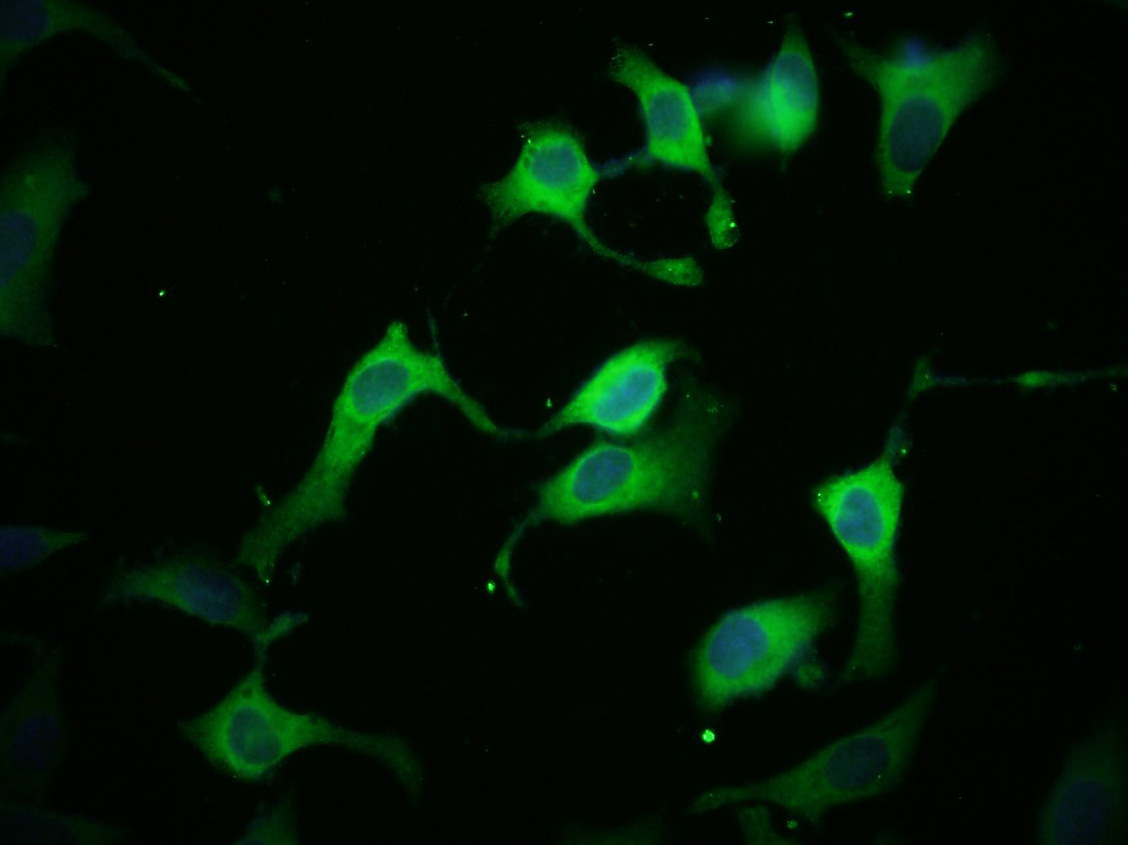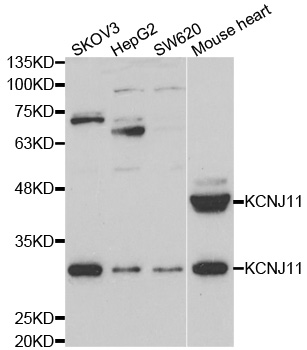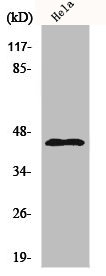KCNJ11 Polyclonal Antibody
RD78050A
ApplicationsELISA, ImmunoHistoChemistry
Product group Antibodies
ReactivityHuman, Mouse, Rat
TargetKCNJ11
Overview
- SupplierReddot Biotech
- Product NameKCNJ11 Polyclonal Antibody
- Delivery Days Customer5
- ApplicationsELISA, ImmunoHistoChemistry
- CertificationResearch Use Only
- ClonalityPolyclonal
- Concentration0.7 mg/ml
- ConjugateUnconjugated
- Gene ID3767
- Target nameKCNJ11
- Target descriptionpotassium inwardly rectifying channel subfamily J member 11
- Target synonymsBIR, HHF2, IKATP, KIR6.2, MODY13, PHHI, PNDM2, TNDM3, ATP-sensitive inward rectifier potassium channel 11, beta-cell inward rectifier subunit, inward rectifier K(+) channel Kir6.2, inwardly rectifing potassium channel subfamily J member 11, inwardly rectifying potassium channel KIR6.2, inwardly-rectifying potassium channel subfamily J member 11, potassium channel inwardly rectifing subfamily J member 11, potassium channel, inwardly rectifying subfamily J member 11, potassium voltage-gated channel subfamily J member 11
- HostRabbit
- IsotypeIgG
- Scientific DescriptionPotassium channels are present in most mammalian cells, where they participate in a wide range of physiologic responses. The protein encoded by this gene is an integral membrane protein and inward-rectifier type potassium channel. The encoded protein, which has a greater tendency to allow potassium to flow into a cell rather than out of a cell, is controlled by G-proteins and is found associated with the sulfonylurea receptor SUR. Mutations in this gene are a cause of familial persistent hyperinsulinemic hypoglycemia of infancy (PHHI), an autosomal recessive disorder characterized by unregulated insulin secretion. Defects in this gene may also contribute to autosomal dominant non-insulin-dependent diabetes mellitus type II (NIDDM), transient neonatal diabetes mellitus type 3 (TNDM3), and permanent neonatal diabetes mellitus (PNDM). Multiple alternatively spliced transcript variants that encode different protein isoforms have been described for this gene.
- ReactivityHuman, Mouse, Rat
- Storage Instruction-20°C
- UNSPSC12352203







